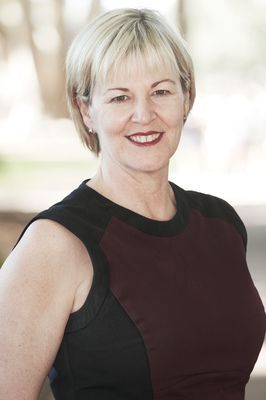The Heart Foundation is renewing calls to narrow the heart disease gender gap, as alarming new research shows women aged 45 and over are less likely than men to have heart health screenings.
The heart health charity has unveiled its results ahead of International Women’s Day to shine a spotlight on these disparities and urge more women to book a Heart Health Check with their GP.
Coronary heart disease is a leading killer of Australian women, claiming 20 female lives on average each day. About 50 women are hospitalised each day for heart attacks.
Heart Foundation Director of Health Strategy, Julie Anne Mitchell, says gender equality – the focus of this year’s #EachforEqual International Women’s Day theme – remains a challenge in the prevention, treatment and management of heart disease.
This is echoed in Heart Foundation research revealing Australian women are less likely to have spoken with a GP about their heart health than men (38% versus 50%). This is despite the fact that more than 7000 women die from coronary heart disease each year.
Women 45 and over are far less likely to have had their risk of a heart attack assessed by a doctor, the results also indicate.
Just 39% of 4115 women aged 45 and over surveyed in 2019 reported having their heart risk assessed in the past two years, compared with 55% of 4345 male counterparts.
Ms Mitchell said one of the common misconceptions about heart disease was it only affected middle-aged men, and this was costing women’s lives.
“It is alarming to see too many Australian women in this at-risk age group are missing out on the vital checks needed to protect their heart health,” Ms Mitchell said.
“More men have heart disease than women, but we know women tend to have poorer outcomes – making prevention and early detection crucial in helping close this gap.
“Women are more likely to fare worse after a heart attack, and are less likely to be prescribed medications, attend cardiac rehabilitation or make the lifestyle changes needed to improve their heart health.
“International Women’s Day is a fitting moment to reinforce the message that heart disease isn’t just a man’s problem; it needs to be on the radar of all Australians.”
If you are 45 years and over, or from 30 if you are Aboriginal or Torres Strait Islander, the best chance of reducing your risk of heart disease starts with seeing your GP for a Heart Health Check.
During a Heart Health Check, your GP will arrange blood tests to check your blood sugar and cholesterol levels, check your blood pressure, ask about your lifestyle and take a medical and family history to determine your risk of having a heart attack or stroke in the next five years.
“The good news is many risk factors can be reduced and there’s plenty you can do about them. Your doctor will support you in taking the necessary steps to improve your heart health, which may include lifestyle changes and possibly taking medications,” Ms Mitchell said.
Visit the Heart Foundation website to learn more about heart disease risk factors, or to complete the Heart Age Calculator, which tells you your “heart age” compared to your actual age.






